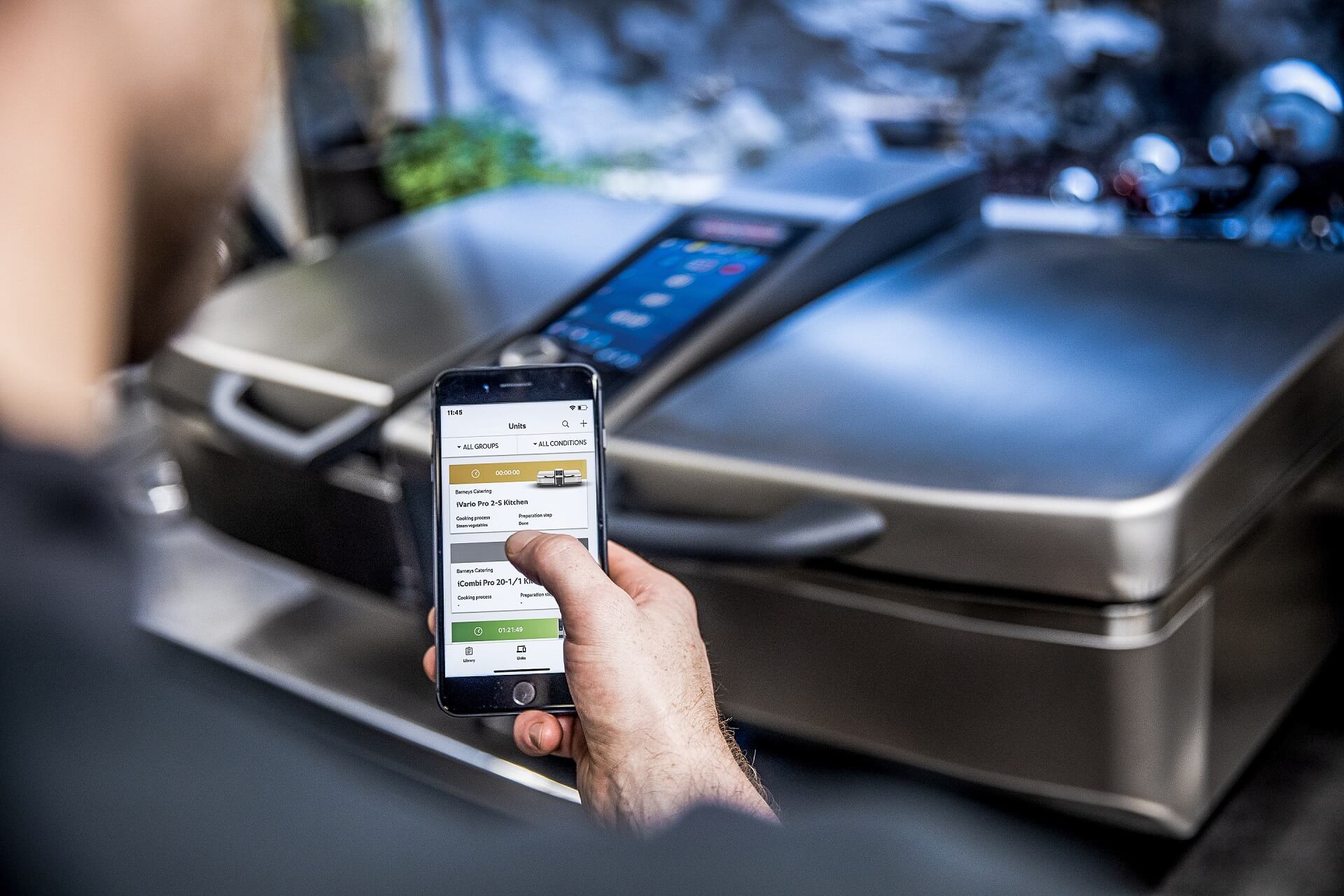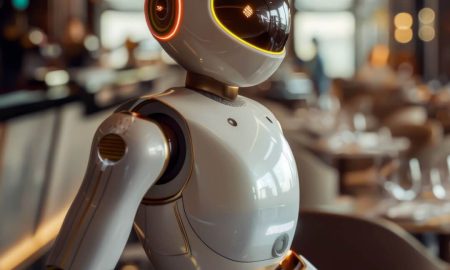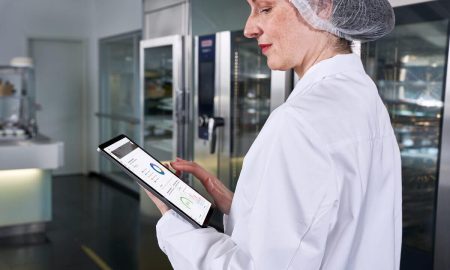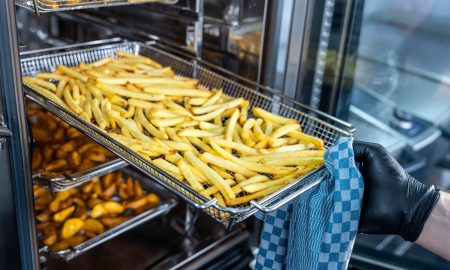The tasks in a modern commercial kitchen are enormous – preparing meals is just one aspect among many. Most of these tasks are performed in the background, with quality the key focus. Lorenz Bruckauf, head of the catering department at the University Medical Center Mannheim’s clinic management service company (Klinik Management Dienstleistungsgesellschaft), or KMD for short, knows what it takes. “This involves communicating with suppliers, making estimates and calculations, reporting all data required by law, providing documentation, compiling statistics for control and planning, food traceability and quality assurance.”

Image: Lorenz Bruckauf
On top of that, KMD doesn’t just provide meals for patients and staff at the university hospital, it also cooks for external customers such as the Mannheim nursing homes for the elderly. Therefore, individual needs and freshness are both very important. The kitchen at the university hospital has even received a seal of approval from the German Nutrition Society.
Care catering becomes a separate line of business
As an example, KMD makes it clear that the world of care catering is changing. Although many hospitals still operate their own kitchens, they are increasingly outsourcing catering business to their own service companies; sometimes they also use external service providers. This fact has also been confirmed by the current care study conducted by the German Hospital Institute (Deutsches Krankenhausinstitut GmbH) in collaboration with K&P Consulting GmbH, one of the leading independent companies for consulting and large-scale kitchen planning in hospital care. Additionally, this means nursing staff are mostly no longer responsible for meal requests. Instead, hostesses, kitchen service staff or nutritionists have taken this over. In most cases, however, the nursing staff is still responsible for serving the food.
Sieh dir diesen Beitrag auf Instagram an
Intelligent software saves time and money
Changes are happening at the Mannheim University Hospital kitchen, which is currently undergoing an extensive renovation. Keeping service and quality high, even under increasing cost pressure, is the top priority. Lorenz Bruckauf is well aware that the high demands cannot be met without the help of modern software programs. The chef and state-certified restaurateur most frequently uses a merchandise management program. However, this does also have some downsides. Bruckauf candidly describes the considerable amount of time required for both set-up and data collection and entry. At the end of the day, however, he says it’s worth the effort. “The quotes are more reliable and transparent, and the billing process is more detailed and faster. This increases customer satisfaction and means we get more orders. But the indirect benefits are far greater!” The expert lists them as follows: “Saving time in ongoing operations, clarity, more flexibility, statistics to facilitate planning, cost savings through optimizing purchasing and warehousing.”
The best food for every patient
Lorenz Bruckauf is planning to push digitization even further. “The absolute priority is to set up a new menu pre-order system for our patients. This is necessary to truly deliver the quality we produce to our customers, while also ensuring the safety of our patients,” he says. “To do that, the system has to rule out the possibility of the patient choosing something that doesn’t agree with them.” According to Bruckauf, this only works if they have complete and up-to-date information on the ingredients of all meals as well as patient data concerning allergies, intolerances, upcoming surgeries, etc. – a daunting task!
Sieh dir diesen Beitrag auf Instagram an
Cooling, cooking, buying – it’s better digitally
Further digitization steps will follow. “We are still postponing monitoring the temperature of the food digitally, GPS-monitored transport of our goods, checkout connections and so on,” Bruckauf points out. On the other hand, they are definitely planning to use a digital kitchen management system. First and foremost, this will be used to centrally program cooking appliances. They also plan to digitize complaint management and time recording, as well as manage and track the use of cleaning agents.
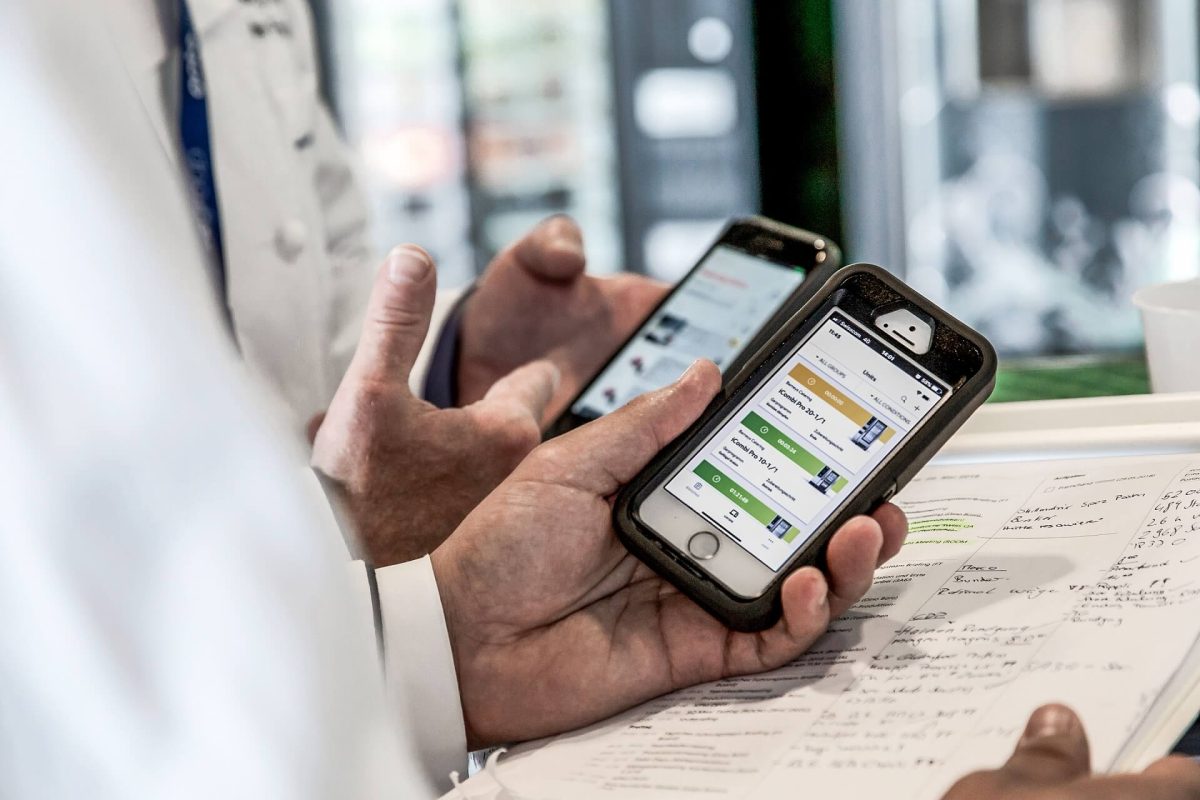
Image: RATIONAL
However, not all hospitals are equally forward thinking. On an international level, Bruckauf says, German hospitals are just average when it comes to digitizing the kitchen area. “In my opinion, concerns about data protection and cybersecurity are crippling digitization more than necessary due to a lack of knowledge,” says the restaurateur.
Digitization makes care catering secure even during the pandemic
Examples of successful kitchen digitization in the care sector can be found in many countries. The Texan company Silicus developed an application for menu management and meal ordering by patients via tablet. The Australian journal Hospital + Healthcare has repeatedly discussed the many advantages of digital technologies over the good old paper economy, including monitoring security risks with Bluetooth thermometers and smartphone apps. The topic is also relevant in Morocco, as a scientific study shows . This study Illustrates how during the Corona pandemic, digitizing food procurement can help a local hospital comply with hygiene regulations – an impressive project that makes the benefits of digitalization particularly concrete and clear!
- Digitization creates gastro jobs
- Rational’s solution for digital kitchen management


